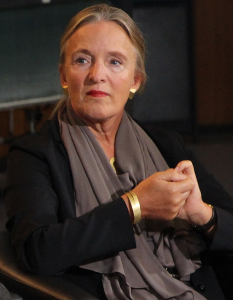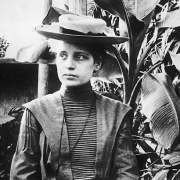“Younger Women Need Role Models in order to Develop Ambition and Stamina”

Today, the UN celebrates women and girls in science. Education, research and academia in general were traditionally male-dominated and there is still a need for change before we can describe the field as gender neutral or equal. Academia today is not only lacking in women, but diversity in general. Yet, while we look forward at how we can tackle current obstacles, it is also important to look back in history and see how the role of women in science has changed over the last centuries.
At the end of 2020, ALLEA published the third book in its series Discourses on Intellectual Europe Women in European Academies: From Patronae Scientiarum to Path-Breakers. This volume shares the stories of thirteen women whose names have made a mark on academies in Europe. To take a closer look, we had the chance to ask historian Prof. Ute Frevert, Managing Director of the Max Planck Institute for Human Development, author, and one of the editors of this book some questions.
Question: In editing “Women in European Academies”, what did you learn or notice most commonly about the roles of women over the different countries and different disciplines?
Ute Frevert: It was quite remarkable (and distressing) to see how all over Europe, the academic world in every discipline has been reluctant and adversarial to accepting female scholars and scientists. This lasted way into the 20th century, and the arguments that buttressed male monopolies were very similar. At the same time, individual women were extremely smart in moving around such obstacles, with passion, tenacity, and, all too rarely, with the help of progressive parents, friends, and husbands.
Q.: Examining academia today, there are more women with on average better higher education degrees in Europe. Still, much fewer than men consider or achieve a career in academia. What changes have you been able to see in your career?
U.T.: I have been socialized in the feminist movement of the 1970s, and since then we have definitely seen some success and progress. Yet, progress is far too slow, compared to the efforts made and the large number of qualified women who would love to pursue an academic career. Among doctoral students, the gender ratio is more or less balanced now. But we still see very few women in top positions.
Q.: If asked why women belong in academia, why or how they can make a unique contribution, what would you say?
U.T.: Honestly speaking, women do not have to make a unique contribution. They belong in academia as much as men do, just because they are both human beings with smart brains. So, in principle, there is no need to further justify women’s place in academia. In real life, however, women often have to be better, more innovative and original than men in order to make it.
Q.: As an expert on emotions and history, what changes do you consider most relevant to these trends and emerging discourses on masculinity and feminism in society?
U.T.: From a historical perspective, first- and second-wave feminism was important because they challenged and finally altered the categories applying to male versus female bodies, brains, and behaviour. They questioned the long-held notion of separate spheres, and they empowered women to move on. Becoming mentally more independent, women developed pride as well as self-confidence – which are essential prerequisites for any career.
Q.: Looking forward, what would you like the role of women look like in academia?
U.T.: I would like to see many more women in top positions, as full professors, research group leaders, institute directors, and presidents of academies. Younger women need role models in order to develop ambition and stamina. At the same time, being a role model does not come easy, because of complex expectations. While men just have to excel academically, women at the top are supposed to be excellent in many more matters. They have to show emotional skills like “feminine” empathy, kindness, understanding in personal relationships. They have to be accessible for all kinds of problems. Having a family proves that they lead a full life and know about motherly and wifely commitment – something that is never requested from her male colleagues. Such gendered expectations are very hard to meet and can result in mutual frustration.
Prof. Ute Frevert is Director of the Max Planck Institute for Human Development, Berlin. Before joining the Institute in 2008, she taught modern history at the Universities of Berlin (FU), Konstanz, Bielefeld and Yale (USA). Her publications include: Women in German History (1989); Men of Honour: A Social and Cultural History of the Duel (1995); A Nation in Barracks: Modern Germany, Military Conscription, and Civil Society (2004); Emotions in History – Lost and Found (2013); The Politics of Humiliation: A Modern History (2020).
Learn more about ALLEA’s book Women in European Academies: From Patronae Scientiarum to Path-Breakers and the series Discourses on Intellectual Europe.




